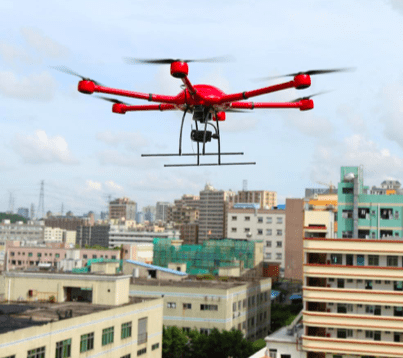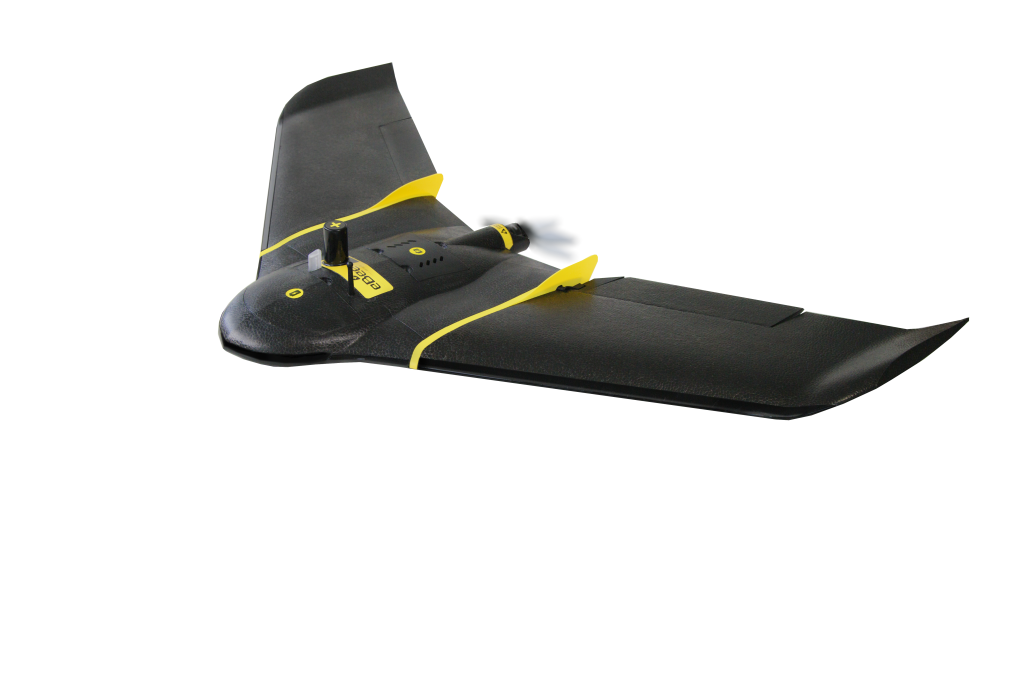
#1. Did you know you need a license for that? The first thing you should consider before rushing out to buy a drone for your business is that any commercial application requires a license. The Part 107 Remote Pilot’s Certificate is required any time a drone is used for non-recreational purposes – so even if you aren’t selling drone services to other businesses, you need a license. Real Estate agents taking pictures of houses to sell, home inspectors using a drone for roof inspections, business owners using a drone for security footage, or construction companies taking aerial shots of construction sites all need to be licensed or risk prosecution and significant fines by the FAA.
If you happen to have a licensed pilot on your staff, the process for receiving a Part 107 Certificate is easier than if you have to start from scratch: but licensing requires significant study to pass an airman’s knowledge test, as well as going through a background check by the TSA.
#2. What kind of skills does your drone operator need? While drones are getting easier to fly all the time, it isn’t always as easy as it looks to get the commercial results that you need to realize the benefit of a drone program. Gathering the right thermographic data for industrial inspections, usable information for precision agriculture, or the most attractive images for marketing purposes requires flight skill and industry knowledge. Many drone operators use drones as an extension of their services – for example, many professional photographers or filmmakers have become professional drone operators in order to offer additional perspectives; building inspectors have become drone operators in order to be more effective at roofing and other industrial inspections. These operators, providing both drone piloting skills and industry knowledge, are often able to offer the best results for the cost.
#3. What kind of drone – and other equipment – will you need? While toy drones often cost only a few hundred dollars, commercial drones are a different aircraft. Excellent professional or prosumer drones for images can cost only a few thousand dollars – although you have to include the costs of cameras and accessories when pricing a drone. Industrial drones, however, capable of endurance flights for agriculture, energy inspections, power line stringing, or public service applications can cost upwards of $30,000 – $60,000. When pricing an industrial drone application, you need to consider not only the price of one or a fleet of drones. The cost of the power source, cameras, data processing, LIDAR technology and other tools required have to be added to the total.
#4. How often do you need drone services? If you need drones every day – for security applications, for example, or as part of your inspection or construction business – then it might make sense to invest in equipment and training. But if you need drone services only occasionally, price out the services of a licensed operator. Drones are generally very efficient, with many applications taking only an hour or two. The bonus of using a licensed operator is that they have the daily practice required to develop good flight skills. Looking for an operator to talk to or hire? Check out a job matching service like JobForDrones which can help you find an operator in your area.
#5. What’s the cost of your insurance for an industrial drone? Just like cars and boats, drones aren’t generally covered by your general liability policy. Depending upon your application and insurance needs, you may need a rider from your insurance agency; an aviation policy; or on-demand liability insurance specifically for drones. You may also want to purchase coverage for damage or loss of equipment, depending upon the drone that you need. Licensed drone operators will generally carry their own insurance for equipment and personal liability; they may pass drone liability for the job on to their customer. Since this cost is only for the time of flight, it is generally modest, although costs vary depending upon location and application.
Finally, if you do decide to bring the drone project in-house, remember that it may take some time to get all of the pieces in place. If you train an existing employee to do the job, the licensing process may take a few months; if you’re hiring a licensed operator they may need a little time to come up to speed on your application.
Drones can offer a significant ROI: saving time, money, and labor in many industrial applications. If your business needs more information on how drones might help help, reach out to one of the commercial drone organizations for further information, such as the Commercial Drone Alliance. The time and money spent on bringing drone technology into your organization is a good investment – and could be just what your business needs to improve the bottom line.
Miriam McNabb is the Editor-in-Chief of DRONELIFE and CEO of JobForDrones, a professional drone services marketplace, and a fascinated observer of the emerging drone industry and the regulatory environment for drones. Miriam has penned over 3,000 articles focused on the commercial drone space and is an international speaker and recognized figure in the industry. Miriam has a degree from the University of Chicago and over 20 years of experience in high tech sales and marketing for new technologies.
For drone industry consulting or writing, Email Miriam.
TWITTER:@spaldingbarker
Subscribe to DroneLife here.
